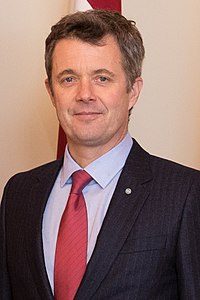User:Poshforgothispassword/Sandbox 4
| King of the Alslandic | |
|---|---|
| Kening fan it Aalslânsk Aalslaste kuningas | |
| File:Coat of Arms of the King of the Alsland.png | |
| Incumbent | |
 | |
| Alof VI since 4 August 2012 | |
| Details | |
| Style | His Majesty |
| Heir apparent | Heiko, Crown Prince of Alsland |
| First monarch | Helmich |
| Formation | 25 April 1722 |
| Residence | |
| Website | The Alslandic Monarchy |
The Monarchy of Alsland is a constitutional, hereditary position within a parliamentary system whose role is governed and sanctioned by the Constitution of Alsland. The Alslandic Monarchy was originally formed as the Monarchy of Delland and Martiland in 1722 as an autonomous monarchy within the Valduvian Empire. The title was switched to the non-ethnic Monarchy of Alsland following the Great War to move away from prior Dello-Martocentrism.
The current monarch is King Alof VI, who has reigned since 4 August 2012 when his father, King Martijn died at the age of 87. The heir apparent is crown prince Heiko. The crown undertakes mainly ceremonial roles, usually limited to public roles although the monarch may be tasked with meeting foreign dignitaries on state visits. The ceremonial roles of the crown may also be supported by junior members of the royal family such as the Consort to the monarch, the crown prince or other less senior titles. Since the establishment of the Monarchy of Delland and Martiland, the royal family of Alsland has been X which is additionally headed by Alof VI.
Whilst the King remains the head of state of Alsland, in reality his position as set out by the constitution is extremally ceremonial and most decisions carried out in his name are done through the State Council (Steatried, Riiginõukogu) which is composed of sernior members of the elected government and other members chosen by the Folkssenaat. For example, whilst the constitution states that the King appoints the government, in reality the Folkssenaat approves the government and the King is required by law to follow the Folkssenaat's actions regarding government formations and dissolutions. The King may only dissolve the Folkssenaat, or any sub-national elected body on the competent advice of that elected body's leadership. In reality, most powers the monarch can exercise may only happen during a time of crisis or national emergency and are as a result highly important within the national security response apparatus.
The Alslandic monarch has two official residences, the working public residence of the Liberijshûs in Yndyk as well as the private residence of the Monarch and his family at the Royal Palace of Lanwjuk. The monarchy also owns several other castles in Alsland which are used for a range of reasons such as museums and are able to be toured by the public. The monarchy is supported by a small fixed state grant delivered annually which is also taxed. All income the monarchy makes annually legally belongs to the state, although any private income the royals make does not belong to the state and as a result many members of the royal family have full-time jobs alongside their positions as royals.
The monarchy remains the most popular institution in Alsland, with polls predicting support fluctuating between 79% to 92% although the personal approval rating of King Alof VI was lower in a 2022 poll, sitting at just 60% which was the lowest personal approval rating of any Alslandic monarch polled.